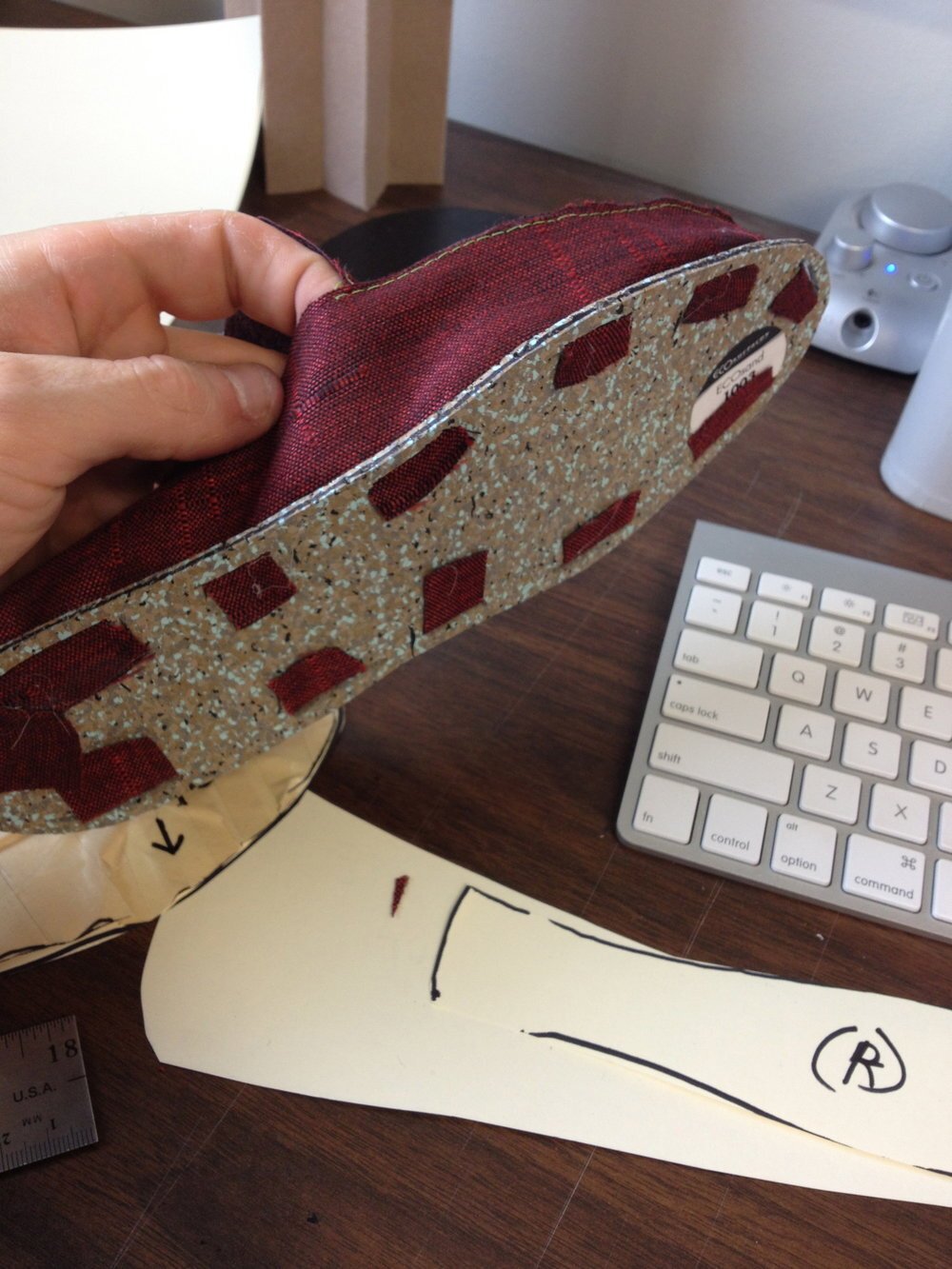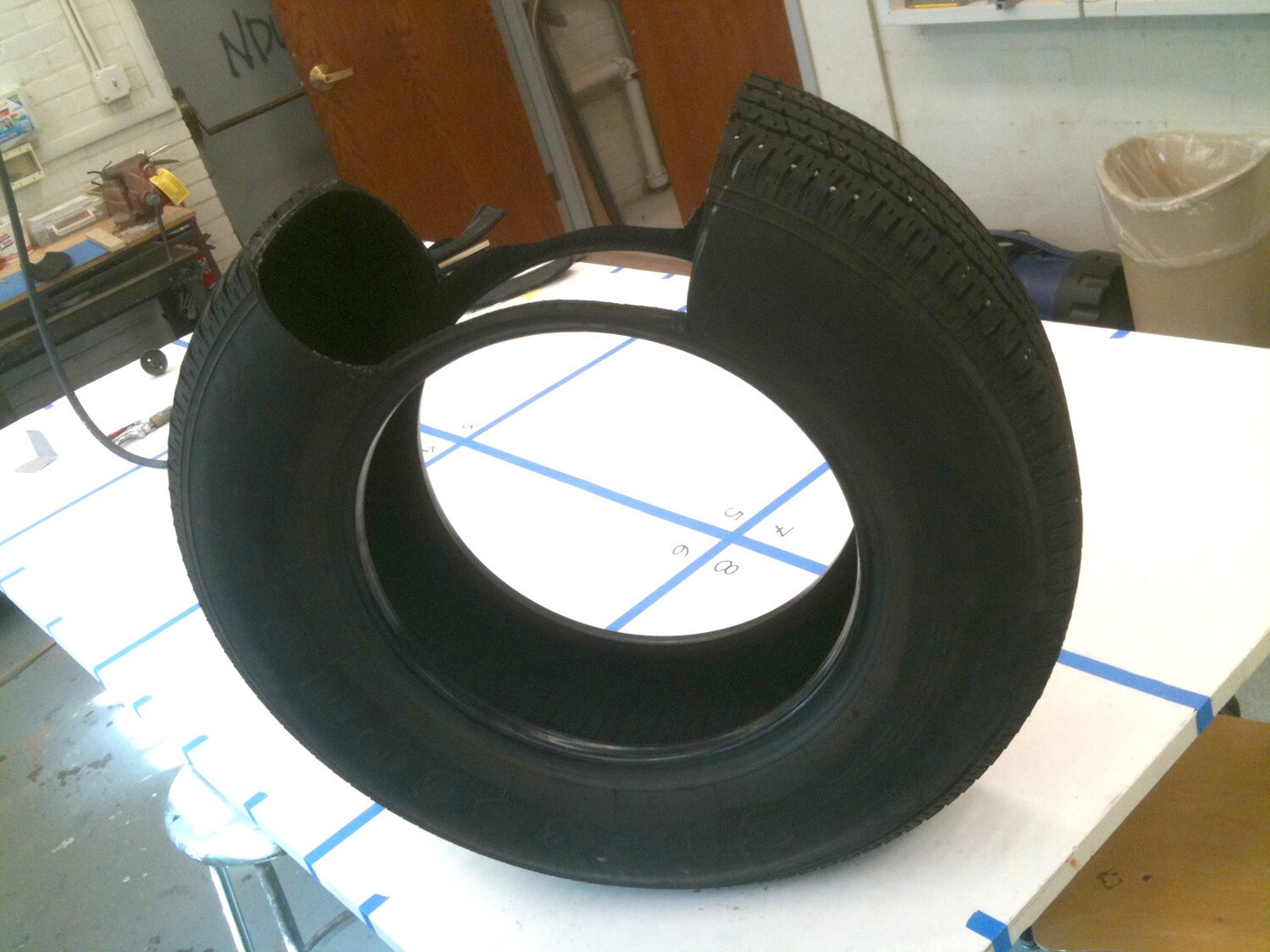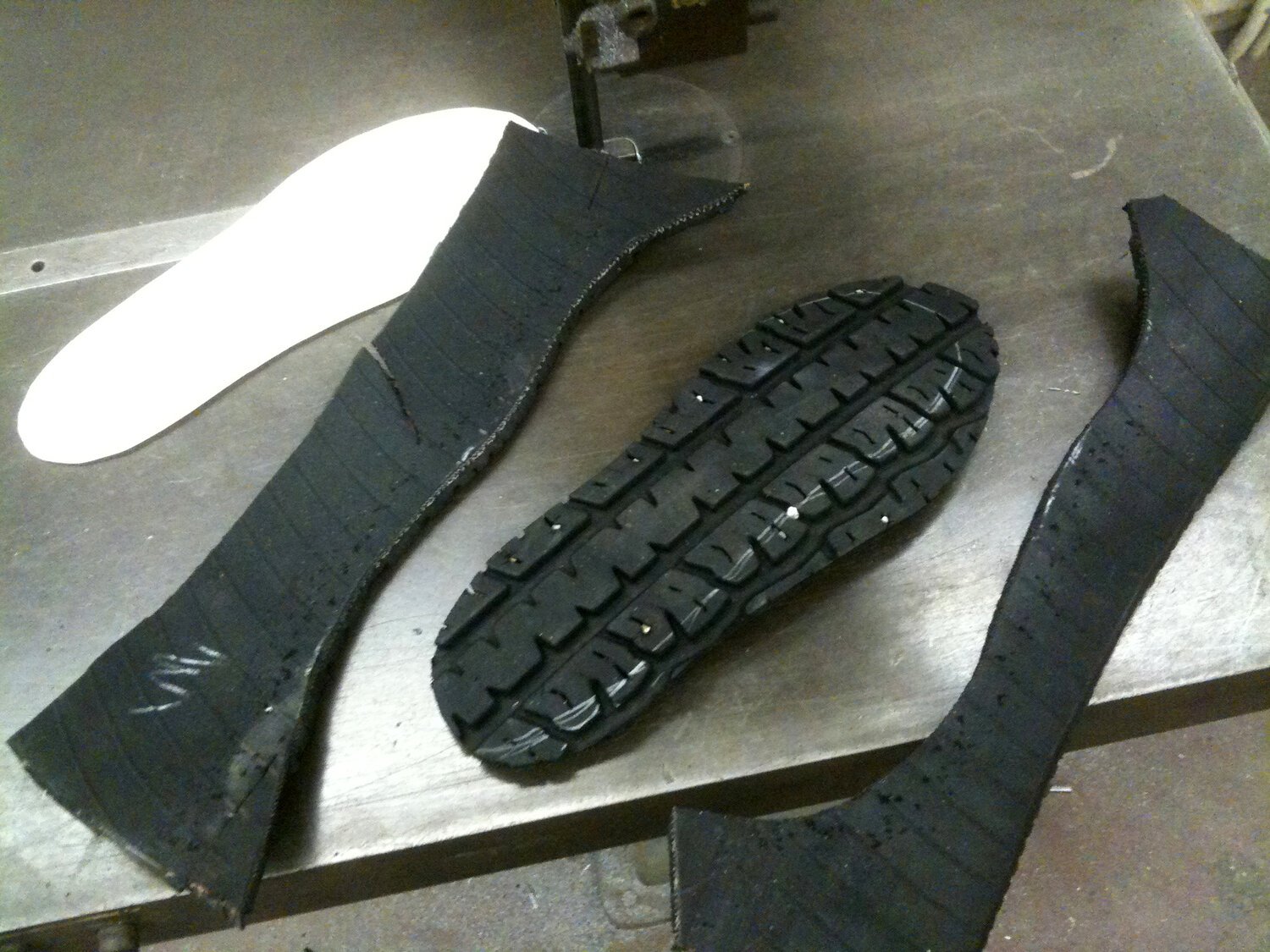
Sobesoles
Sobesoles (South Bend Soles) combined knowledge gained as a footwear design intern at New Balance with my initial observations of the hard-hitting effects of the economic decline in the South Bend area. The project reflected my interest in serving a specific community, bringing divergent resources and talent together for purposes of mutually benefitting the maker as well as the recipient.
Sobesoles focused on the acquisition of discarded tires and industrial off-fall from local manufacturers. This led to the development of a line of hand-made footwear that initially targeted needs for regional employment, and proposed an endeavor that could create jobs for the homeless as well as provide affordable access to stylish shoes for all demographics.
This project is a symbolic statement about the possibilities of what could be done to alleviate the issue of rampant waste in manufacturing. It extends beyond South Bend and has the potential to be a globalized beacon of opportunity that serves the underserved. By striving to become a venture that puts utmost priority in the well-being and satisfaction of its employees, stakeholders, community, and consumers, Sobesoles is positioned to use the powers of business and design to solve social and environmental problems and help bring South Bend back to the American production powerhouse it once was.
Notre Dame MFA Design Project, 2011
Press: Notre Dame Magazine, Spring 2012

Sobesoles began with the goal of removing materials from the waste stream and upcycling them into sustainable footwear with the intention of distributing them to those in need.
Background
The small city of Elkhart, Indiana, 15 miles from South Bend, is known as the RV Capital of the World. Additionally, it is home to several boat manufacturers and van conversion companies. I contacted Jayco, the nation's largest family-owned and operated RV manufacturer and was invited to visit the headquarters and collect scrap material and cut-offs from their recycling plant.
I was welcomed graciously and received a tour of the manufacturing plant where I was able to meet several employees. The fabrics I collected were used to upholster RV chairs, carpets, and dashboards.
Elkhart, Indiana: RV Capital of the World
Process
Once the fabric collections were complete, my next task was getting hold of an industrial sewing machine...and learning how to sew. This 1960s Singer was bought on Craigslist and was about to be put through the most vigorous torture-test of its life. Punching the needle through thick leathers, plastics, and vinyls was incredibly difficult and countless needles were sacrificed in the process.
I began my pattern-making process by deconstructing shoes from the thrift store and tracing them in order to create rough patterns for my uppers. This process was arduous and required many hours of effort due to the different proportions and sizes of shoes and lasts.
Taping the lasts proved to be a much better solution. I learned this process as a design intern at New Balance. My initial patterns were traced onto thrift store tote bags and discarded fabrics.
After the patterns were traced and cut, I tested their fit by placing them onto the lasts and adjusting as needed. The next step involved cutting the updated patterns from the RV fabrics. I experimented with linings by using different colors and patterns on the inside of several prototypes. Some of the uppers required extra layering and stitching on areas prone to high-abrasion and high-stress.







Conclusion
The final deliverables were several hand-crafted shoe prototypes made from various upcycled materials. The shoe uppers, linings, and insoles were cut from the fabrics I collected from Jayco. The outsoles were assembled from different rubbers, including tire treads cut from discarded bike tires at a local bike shop, discarded door mats, and gym floor tiles.













